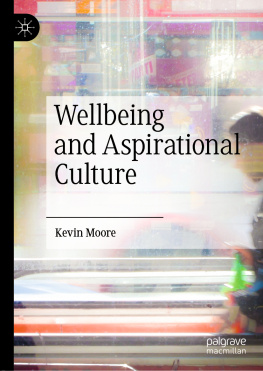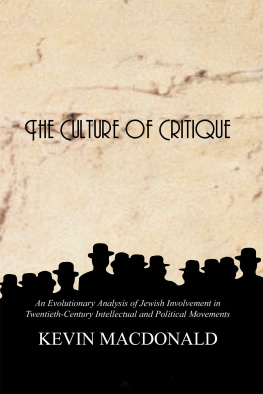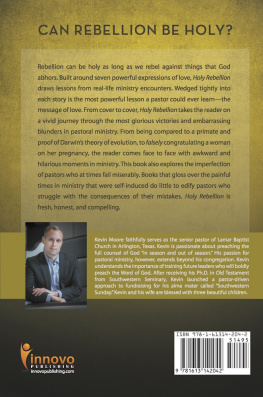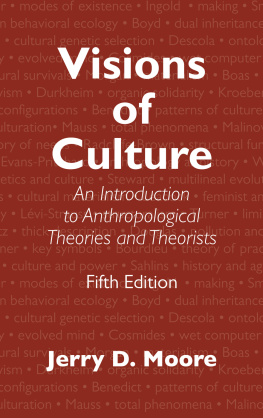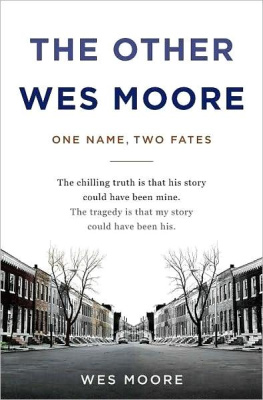Kevin Moore - Wellbeing and Aspirational Culture
Here you can read online Kevin Moore - Wellbeing and Aspirational Culture full text of the book (entire story) in english for free. Download pdf and epub, get meaning, cover and reviews about this ebook. year: 2019, publisher: Springer International Publishing, genre: Religion. Description of the work, (preface) as well as reviews are available. Best literature library LitArk.com created for fans of good reading and offers a wide selection of genres:
Romance novel
Science fiction
Adventure
Detective
Science
History
Home and family
Prose
Art
Politics
Computer
Non-fiction
Religion
Business
Children
Humor
Choose a favorite category and find really read worthwhile books. Enjoy immersion in the world of imagination, feel the emotions of the characters or learn something new for yourself, make an fascinating discovery.
- Book:Wellbeing and Aspirational Culture
- Author:
- Publisher:Springer International Publishing
- Genre:
- Year:2019
- Rating:3 / 5
- Favourites:Add to favourites
- Your mark:
- 60
- 1
- 2
- 3
- 4
- 5
Wellbeing and Aspirational Culture: summary, description and annotation
We offer to read an annotation, description, summary or preface (depends on what the author of the book "Wellbeing and Aspirational Culture" wrote himself). If you haven't found the necessary information about the book — write in the comments, we will try to find it.
Wellbeing and Aspirational Culture — read online for free the complete book (whole text) full work
Below is the text of the book, divided by pages. System saving the place of the last page read, allows you to conveniently read the book "Wellbeing and Aspirational Culture" online for free, without having to search again every time where you left off. Put a bookmark, and you can go to the page where you finished reading at any time.
Font size:
Interval:
Bookmark:
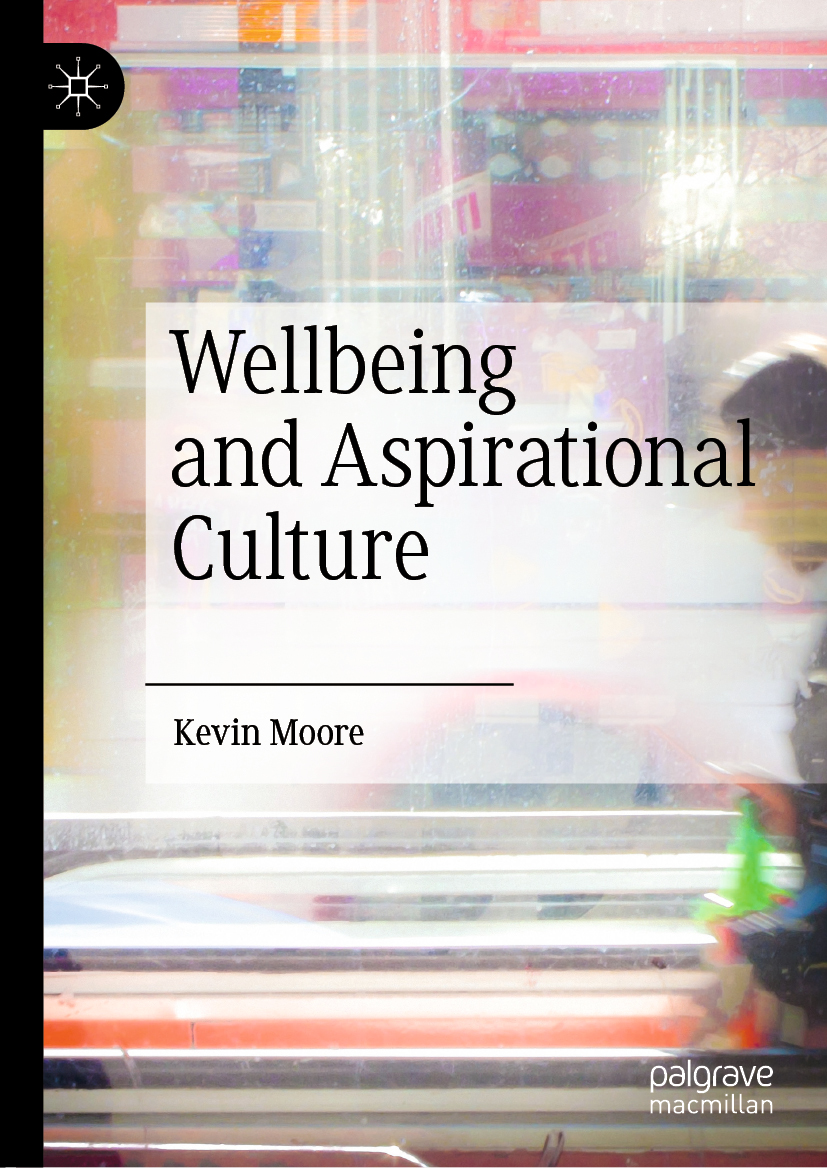

Cover illustration: Alex Linch shutterstock.com
This Palgrave Macmillan imprint is published by the registered company Springer Nature Switzerland AG
The registered company address is: Gewerbestrasse 11, 6330 Cham, Switzerland
To my father, James Noel Moore who taught me the importance of simply being an ordinary person.
To Ludwig Wittgenstein who, through his philosophy has made me understand why the ordinary, everyday world we live in is so extraordinary.
While the ideas behind this book have been coming together over several decades they came into much clearer focus during my study leave in 2017. I would like to thank Lincoln University for the financial support I received for that study leave. In many ways, however, the more important support I received was from my Head of Department, Roslyn Kerr, and the Dean of my Faculty, Greg Ryan. Both encouraged me to take leave and were fully supportive of me spending the time to develop these ideas into book form.
Ideas do not come from nowhereand not even from one persons mind. I would like to acknowledge the very helpful conversations I have had with John Cromby, of the University of Leicester, and Will Davies, from Goldsmiths, University of London and for allowing me to take up some of their time when I was in the United Kingdom. I am especially grateful for the hospitality and opportunities provided by John Cromby during my short stay as a Visiting Scholar at Leicester.
The unobtrusive but always positive and supportive approach of the editorial team at Palgrave Macmillan, UK has also been much appreciated. From my first meeting with Grace Jackson at the British Psychological Society Conference in Brighton, to my contact via email with Joanna ONeill and Kumaravel Senbagaraj the responses and advice I have received has been professional, prompt and always friendly.
Finally, I must do more than say Thank You! to my wife Karyn and daughter Brianna. You have made the process so much easier for me by how you have understood the importance of this project to me, made space for me to work, put up with my evening and weekend absences, and never once made me feel like what I was doing was a problem for you. I know I did not always keep up with the work schedules you drew for me Brianna (sorry!) but having you do that for me said so much that was good about our relationship. When it comes to understanding the wellbeing of this person, you are both world experts.
This book is about the difficulties involved in trying to experience wellbeing in todays world. I take as straightforward facts that people are having difficulty living well and that they are having these difficulties irrespective of claims by some that, on all sorts of dimensions, the human world is better than it has ever been. To put it at its starkest, there may well have been a reduction in all forms of physical violence (Pinker ) involves seeing that our wellbeing concerns are principally about personsand being clear about just what a person is should therefore be central to understanding wellbeing. It is persons who are the enduring, identifiable subjects of experience and so they must also be the subjects of any experience of wellbeing . Yet, crucially, personsperhaps unlike individual biological members of the human speciesare intimately associated with the social and the cultural worlds that generate them. They are perhaps best expressed as doings in that worldrather than beings or entities (though I will refer to them as entities and beings for simplicitys sake). This connection to the sociocultural world is probably why psychology in general, and the psychology of wellbeing in particular, has had a deal of difficulty incorporating, or even acknowledging, persons in theory. Psychology is all about the person, but the person is nowhere to be seen in psychological theory (with some notable exceptions, as we will see).
Given these points, the way we are typically concerned with wellbeing cannot be understood without also understanding the kinds of cultures within which persons arise. And, to add some complexity, wellbeing also cannot be understood fully without some understanding of the typical lifetasks (Cantor et al. ) a particular culture sets before the persons that it generates. The extent to which these tasks are mastered will determine the extent to which that person is found to be in good standing as a person in that culture. For a person, being in such good standing is a large part of living a good life ; a life of wellbeing . But a person is not passive in these assessments of her standing. The skills we each develop and can draw upon to present ourselvesto both ourselves and othersas being in such good standing are crucial tools we bring both to achieving our life tasks and to our presentation of our success, or lack of success, at them.
The argument of this book is straightforward and has two parts. The first part is the claim that work on wellbeing especially within psychology has omitted from consideration a fundamentally important question: The wellbeing of what? As already mentioned, I argue that the answer to that question is persons. Much of the theoretical and conceptual importance of what follows therefore concerns understanding what persons are and why such curious entities came to be. That is, I make an argument for the basic functional features of persons and personhood and, hence, why and how persons evolved and also why they are one of the main targets of human development.
Font size:
Interval:
Bookmark:
Similar books «Wellbeing and Aspirational Culture»
Look at similar books to Wellbeing and Aspirational Culture. We have selected literature similar in name and meaning in the hope of providing readers with more options to find new, interesting, not yet read works.
Discussion, reviews of the book Wellbeing and Aspirational Culture and just readers' own opinions. Leave your comments, write what you think about the work, its meaning or the main characters. Specify what exactly you liked and what you didn't like, and why you think so.

